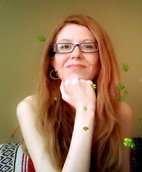|
By Lidiya Angelova
I’ve been fortunate in that I’ve had the opportunity to meet scientists from all parts of the world, and I’ve made a few observations: people from the US and Asia tend not to spend much time on communicating during coffee and lunch breaks; but Africans, Australians and South Americans are more like the Europeans, who treat meals more socially. What you may not realize in a new lab setting is that everyone likes to have a chat with a tea or coffee and have the occasional lunch at a nice restaurant. With some practice and new knowledge about how food and drink affect social interaction, you’ll be able to jump into the conversation and make good contacts and strong friendships. The best places to start chatting are usually the common kitchen and recreational areas. As a new labmate, introduce yourself to the people you don’t know and ask about their interests or the food they are eating and whether they like coffee. Then, tell them about yourself and what you like to eat and do for fun. In some labs, people may prefer to bring lunch from home, but you could always invite a co-worker to eat at the local buffet or nearby restaurant, as a way to take a break and find new conversation topics. It’s important to note that in the US lunch usually means only eating a meal, while in Europe it’s normal to have a glass of wine or a beer with food. For most Europeans, drinks are part of the dining experience. They make the food tastier and complement the meal. If you are an American but want to have lunch in a European way, one fun way to introduce this style of eating could be to propose a “European lunch” day of the week, where you can try different restaurants and drinks as a group. The long (and sometimes unpredictable) hours of a scientist mean that coffee breaks are another important part of social life in the lab. However, there’s a cultural difference between the American and the European ways. In the US, a coffee break tends to mean “grabbing a coffee to-go” and drinking it back at your desk, but in Europe, coffee breaks are intended for conversation with your peers, by enjoying refreshing coffee or tea and cake at either the office kitchen area or local café. One of the most exciting things about being a scientist is that you can meet lots of interesting people from all around the world in the research lab or in the office, and the language of food can be a great tool in understanding cultural differences that can sometimes be difficult at an international lab. Once you’re better acquainted with the varying ways that people from different parts of the world try to communicate, social interactions can be easy to navigate. Fortunately, lunch and coffee breaks are great ways to get to know each other, create connections, and develop friendships for life. Interested in knowing more about networking? Are you gearing up for that summer internship and looking for tools to get the most out of the experience? Take a look at another piece in our series on Communication and Networking: Niharika Vattikonda’s Ways to Keep in Touch with Your Peers and Mentors from your Summer Internship 
About the Author
Lidiya’s curiosity about “how life works” led her to complete a Master’s degree in Biology and a PhD in Microbiology. Science gave her more questions than answers, and after a few years as a postdoc at the National Institute of Health in Rockville, MD, she decided to pursue her first love in writing. Not long after that, she became a mom of a wonderful girl, who is a very energetic toddler now. She loves to travel and has lived in many countries; she is still looking for a place to settle down. Lidiya is thrilled to be a part of the Scientista bloggers team, and loves being able to connect with lots of wonderful, young, and established female scientists, while writing about science, life, and everything else. Comments? Leave them below!
0 Comments
Your comment will be posted after it is approved.
Leave a Reply. |
CONNECT WITH USSUBSCRIBE |
The Scientista Foundation, Inc. All Rights Reserved © 2011-2021 | Based in NY | [email protected]
The Network for Pre-Professional Women in Science and Engineering
The Scientista Foundation is a registered 501(c)(3) -- Donate!
The Network for Pre-Professional Women in Science and Engineering
The Scientista Foundation is a registered 501(c)(3) -- Donate!


 RSS Feed
RSS Feed